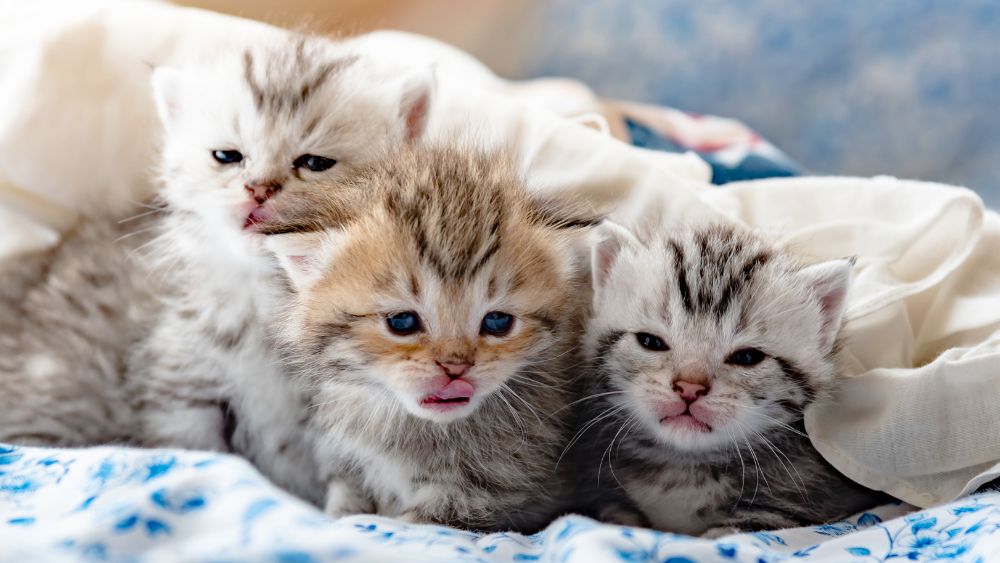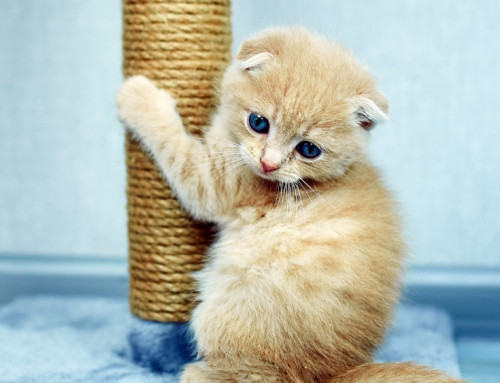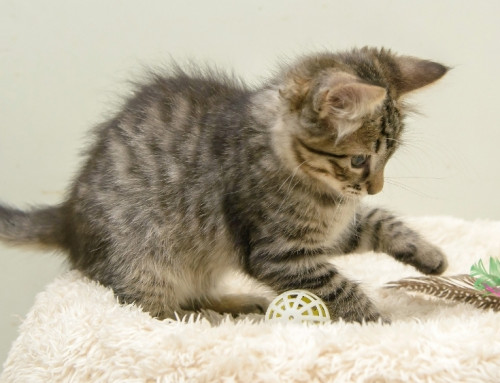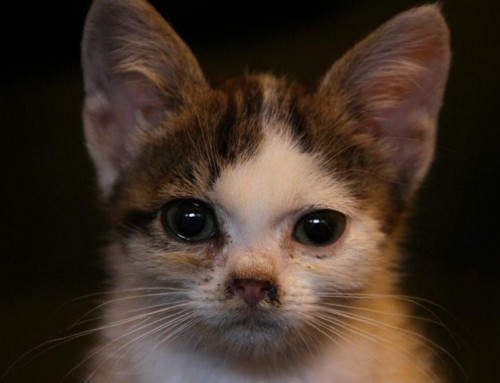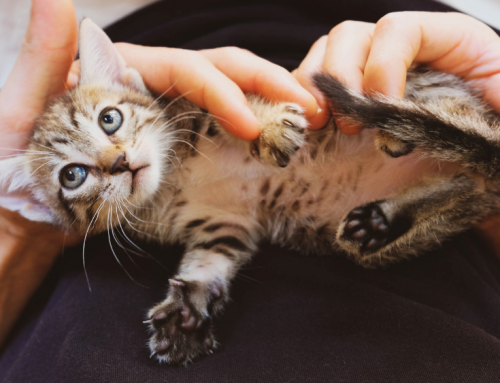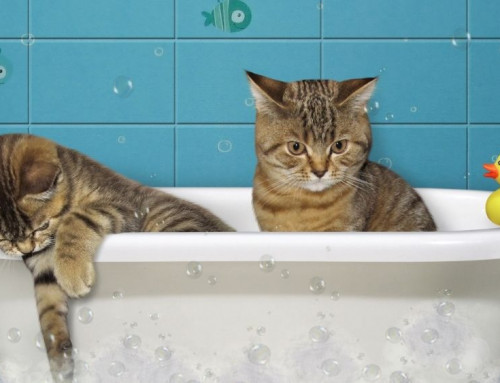Share this resource or email it to a friend!
If you’ve encountered cross-sucking in kittens you’ve fostered, you know it can be difficult to resolve and painful to experience for both you and the kittens.
During their first few weeks of life, kittens touch their moms 85% of the time and “nurse” on their moms even when no milk is released. Even during brief periods of maternal separation, kittens exhibit distress. It’s no surprise that cross-sucking occurs in orphaned kittens.
You may observe cross-sucking directly or see the signs that it’s occurred. These include:
- Wetness on kittens’ ears, belly, anogenital area and back legs because they are being sucked on. Remember that kittens need to be stimulated to pee, so they should be dry between feedings.
- Reduction in elimination when you try to stimulate kittens to pee and poop because sucking from their littermates already stimulated the kittens to pee and poop.
- Wet and stinky faces on sucking kittens because their sucking stimulated littermates to pee and poop on them.
- Digestive upset in sucking kittens because they’ve ingested their littermate’s pee and poop.
- Poor appetite in sucking kittens because their stomachs are full with pee and poop.
Research by Dr. Mikel Delgado and colleagues, published in September 2020 in Applied Animal Behaviour Science, noted that being: orphaned, separated from the mother at an early age, in an all-male litter and bottle-fed increased the incidence of cross-sucking. That’s unsettling if you’re fostering.
Although their research revealed that female and male kittens were equal opportunity suckers, male kittens were at increased risk of being sucked on because the penis and scrotum resemble a nipple more than any other body part. Injuries are sometimes so severe that a kitten may require surgical reconstruction of his urethra or euthanasia.
The researchers didn’t discover any correlation between environmental factors or foster care practices and cross-sucking behavior. That’s a bit of a relief if you’re fostering.
If you’ve searched the internet for strategies to stop cross-sucking, you’ve probably found videos on how to cut socks to make the targeted areas inaccessible. However, socks (or any covering) are problematic; they can actually stimulate urination when the kitten moves around. Unless monitored constantly and changed immediately when wet, body coverings can cause severe irritation.
You may have encountered advice to isolate suckers, which can be successful especially if the sucking is caught early and re-introduction is supervised. Although isolating kittens already separated from their mothers is not ideal, it may be the lesser of the evils considering the possible severe consequences to the sucking and sucked kitten. Isolating with a companion who is not being sucked on is one possible answer. Unfortunately, isolating kittens doesn’t address the underlying motivation for the behavior and over 73% of kittens in Delgado’s study resumed sucking when reunited with littermates.
Because cross-sucking is difficult to stop, preventive strategies are important. The researchers want to investigate if the individual kitten’s condition when rescued, stress and genetic makeup are factors that influence cross-sucking. They’ll be researching whether a surrogate mother, such as a stuffed animal with nipples, can prevent or reduce the severity of cross-sucking and trying to determine if cross-sucking persists into adulthood.
If you’re dealing with cross-sucking, contact the animal shelter or rescue group that you’re fostering for. If you’re fostering “on your own,” reach out to your veterinarian for additional guidance.

